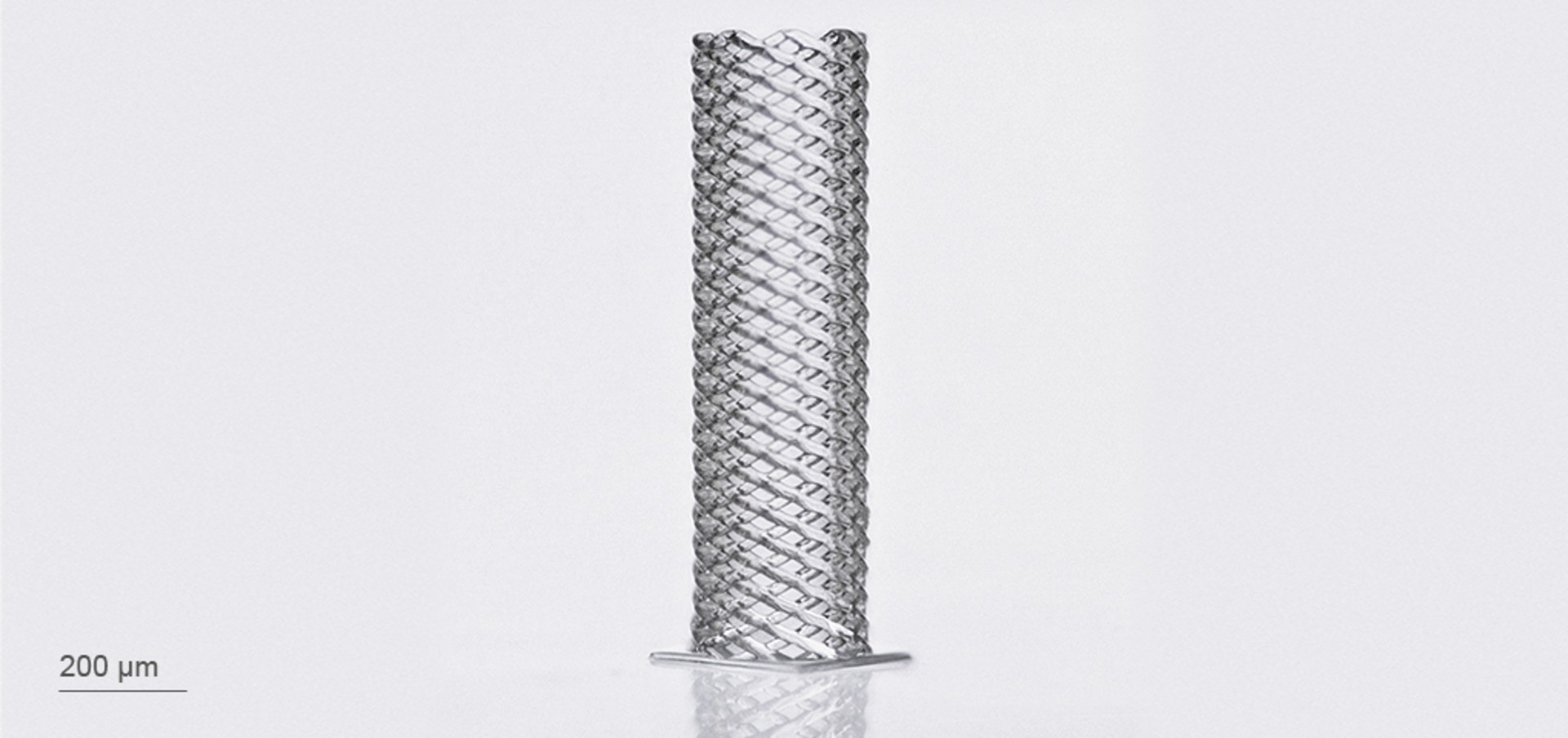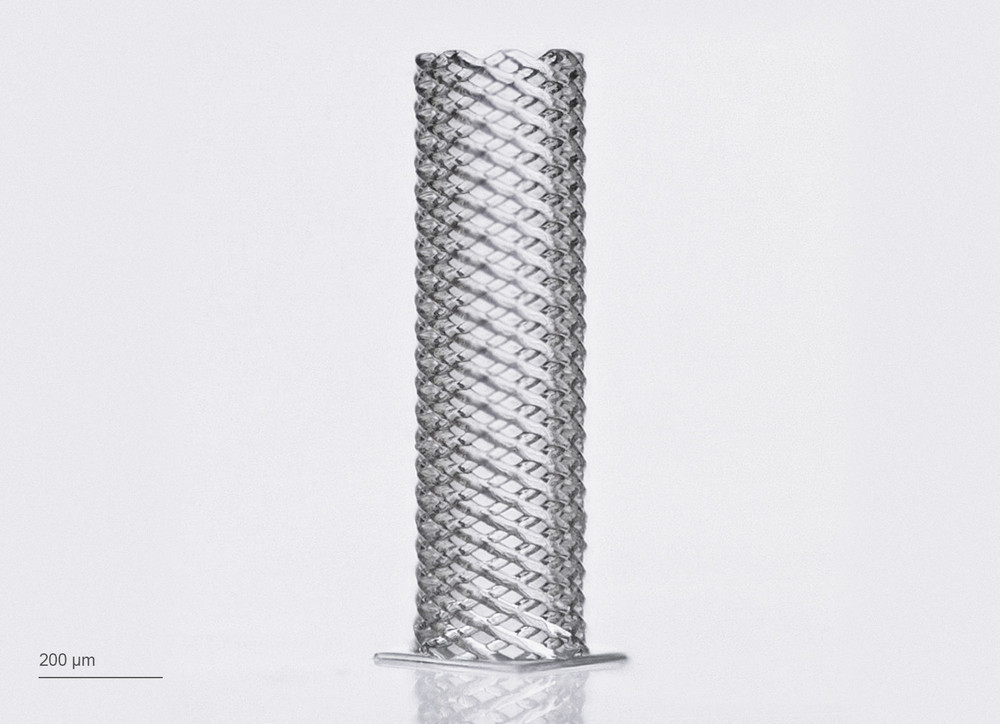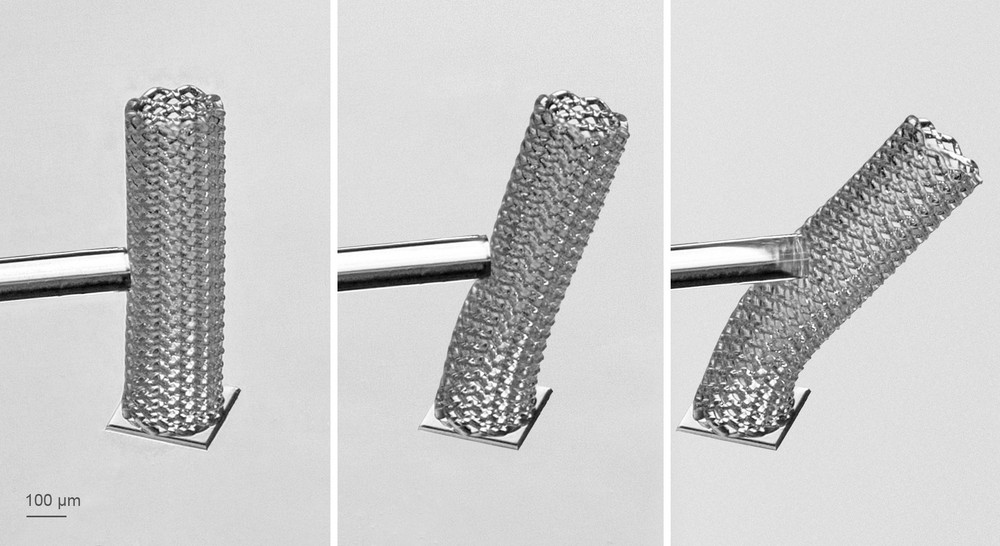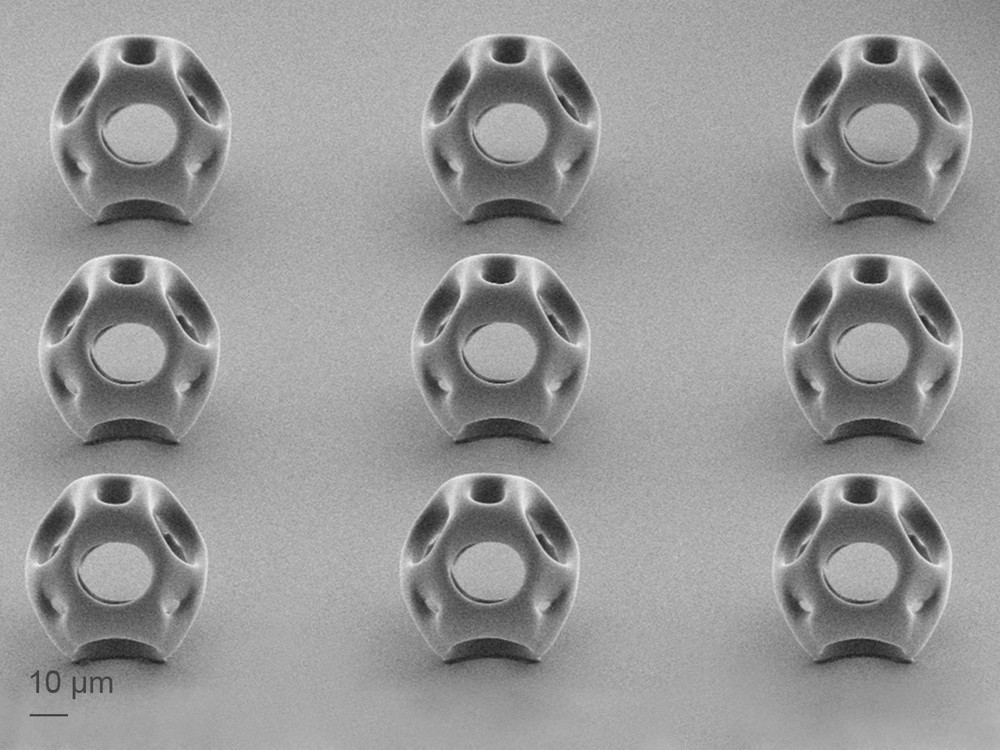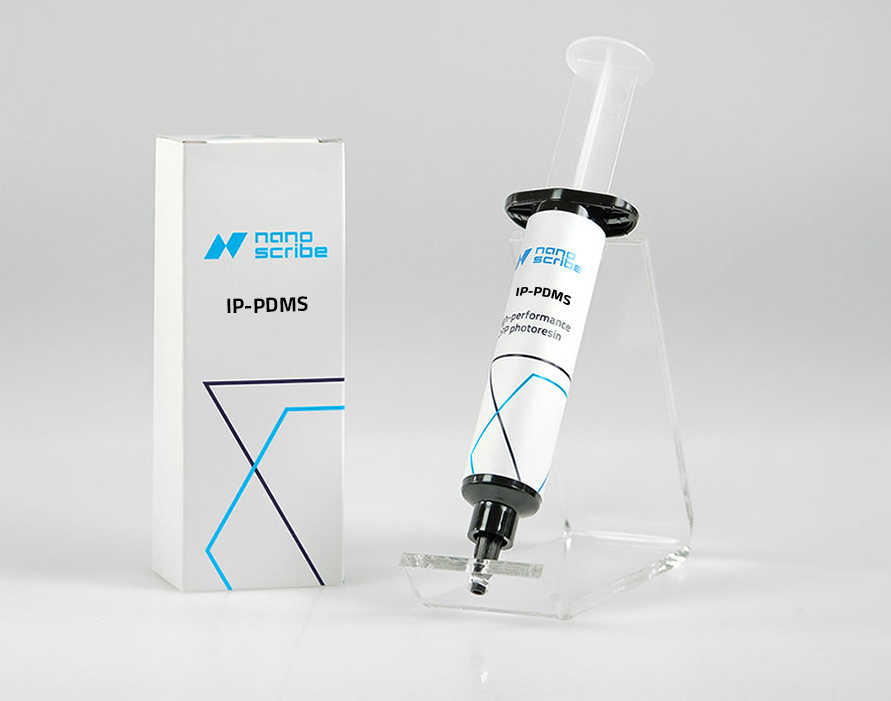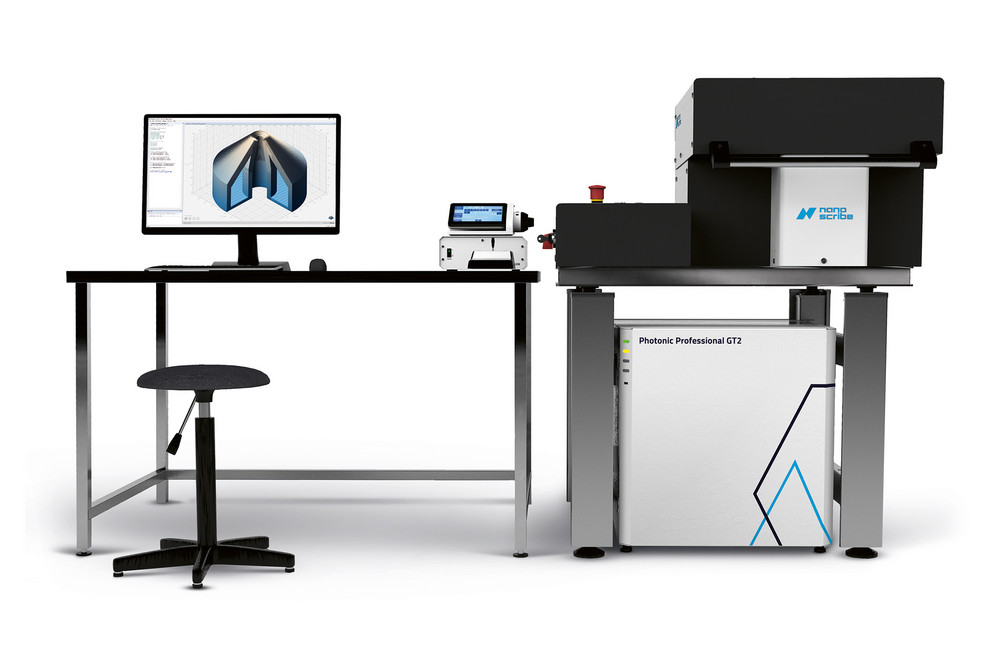The IP-PDMS photoresin is Nanoscribe’s first printing material with elastomeric properties. The softness, flexibility and elasticity of IP-PDMS are particularly beneficial for new microfabrication strategies in life sciences, microfluidics and MEMS. The wide range of pioneering applications include elastic freeform cell scaffolds and tissue engineering applications, 3D-structured surfaces and microfluidic devices. “In our initial tests for 3D printing soft polymeric structures, IP-PDMS turned out to be a promising material. Personally, I am excited to exploit the new resin for microrobotic components and biomimetic scaffolds”, says PhD Ada-Ioana Bunea, Assistant Professor at the Nanolab of the Technical University of Denmark (DTU) in Copenhagen, summarizing her upcoming research projects with IP-PDMS.
Mechanical properties for 3D Microfabrication of pioneering applications
The new IP-PDMS photoresin shows a Young’s modulus of 15.3 MPa and is thus about three orders of magnitude more elastic than the popular IP-S photoresin of Nanoscribe’s IP Resin portfolio. First users of the printing material appreciate its elastic tensile elongation: “IP-PDMS is a remarkably elastic printing material that can be stretched by up to 240%”, says Dr. René Hensel, Deputy Head of Functional Microstructures at the Leibniz INM – Institute for New Materials in Saarbrücken (Germany). The interplay of these mechanical characteristics paired with its low refractive index, chemical inertness and gas permeability are well-known for standard PDMS. Together with the versatility of Nanoscribe’s 3D Microfabrication technology and solutions, IP-PDMS offers considerable potentials for novel applications and devices in life sciences, microfluidics and micromechanics. “IP-PDMS, as a 3D printable material, is highly interesting for micropatterned functional surfaces. We can skip time-consuming molding steps to transfer designs into elastomers and new designs become feasible”, Dr. René Hensel emphasizes its potentials for new functional surfaces.
ISO-approved biocompatibility for life science applications
The silicone-based elastomer IP-PDMS features properties which are similar to those of conventional PDMS. The photoresin is the optimum choice for 3D printing soft, flexible and elastic microstructures. Moreover, the non-cytotoxic properties of IP-PDMS have been tested according to ISO standards. Therefore, the new photoresin is also a promising printing material for 3D-printed applications in life sciences and biology. The new photoresin is particularly advantageous for elastic freeform cell scaffolds or 3D designs mimicking the natural characteristics of soft tissue.
About Nanoscribe
The medium-sized company develops and produces 3D printers and maskless lithography systems for microfabrication as well as specially developed printing materials and application-specific solution sets. The specialist for additive manufacturing of high-precision structures and objects on the nano-, micro- and mesoscale was founded in 2007 as a spin-off of the Karlsruhe Institute of Technology (KIT). With the Carl Zeiss AG (ZEISS), Nanoscribe has a strong partner and investor at its side. Today, with more than 70 employees and subsidiaries in China and the USA, Nanoscribe has become the market and technology leader. More than 2,000 users and operators at top universities and innovative industrial companies worldwide benefit from the groundbreaking technology and application tailored solutions for 3D Microfabrication.
